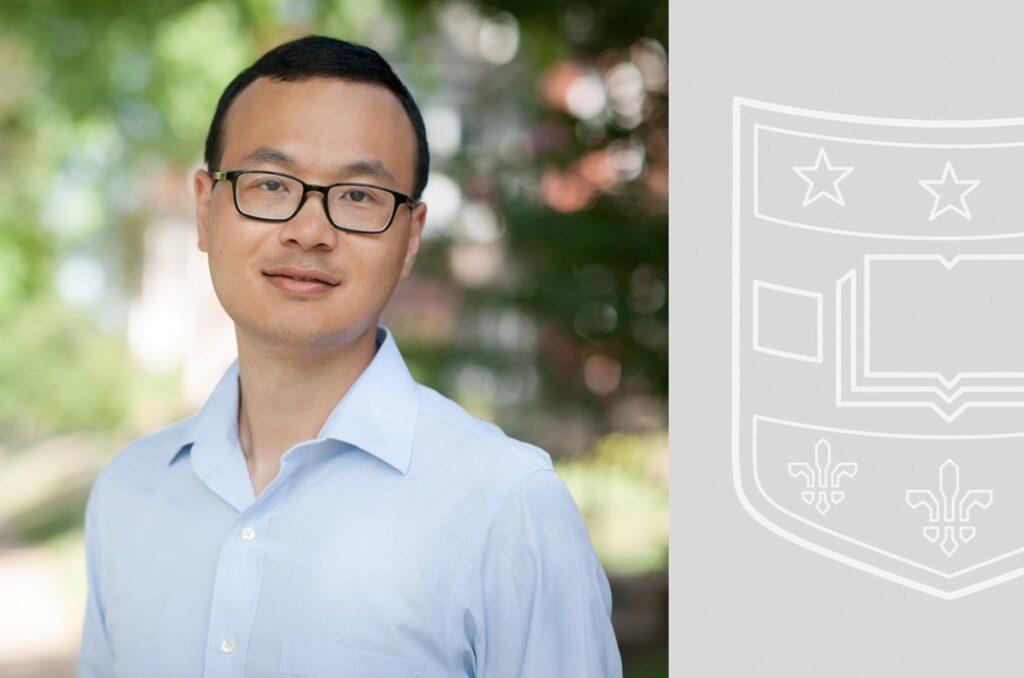Dr. Jerry Xiang received his Medical Degree in 2010 from the Medical College of Three Gorges University in Yichang, China. After finishing medical school, he joined Dr. Katherine Weilbaecher’s lab as a postdoctoral research associate from 2010 to 2015 and continued to work as a staff scientist in the lab. During the training in Dr. Katherine Weilbaecher’s lab, his research is focused on understanding tumor microenvironment (including osteoclasts, osteoblasts, stromal cells and immune cells) that influences tumor growth/metastasis as well as cancer-associated bone loss. He has made several discoveries including the finding that inhibiting hedgehog signaling pathway can block the growth of breast cancer tumors through effects on tumor microenvironment and the findings that blockade of chemokine receptor CXCR4, the same gene that is important for stem cells and leukocyte trafficking and known to be the co-receptor of HIV-1, disrupted metastasis and enhances chemotherapy effect in triple negative breast cancer. Bone loss is a serious complication of adult T cell leukemia/lymphoma (ATL), an aggressive cancer caused by the human T-cell leukemia virus type 1 (HTLV-1). With a team of collaborators, Dr. Xiang investigated the HTLV-1 viral oncogene HBZ and its impact on cancer-associated bone destruction using the novel humanized mouse and patient-derived xenograft models.
Besides his work in basic research, Dr. Xiang completed his Master of Science in Clinical Investigation (MSCI) training in 2021, under the guidance of Drs. John DiPersio and David Warren at Washington University School of Medicine. During this clinical research training period, he has developed machine-learning-based scoring models to predict hematopoietic stem cell mobilization in G-CSF mobilized allogeneic donors. Dr. Xiang has several areas of interest that involve both clinical and translational studies. Mobilized peripheral blood has become the primary source of hematopoietic stem cells for both autologous and allogeneic stem cell transplantation. Granulocyte Colony-Stimulating Factor (G-CSF) is currently the standard agent used in the allogeneic setting. Despite the high mobilization efficacy in most donors, G-CSF requires 4-5 days of daily administration, and a small percentage (~5%) of the donors fail to mobilize an optimal number of stem cells necessary for a safe allogeneic stem cell transplant. Early detection of potential poor mobilizers could help identify donors who may benefit from alternative approaches include selecting alternative related donors if available, increasing dose or frequency of G-CSF dosing, the addition of chemokine antagonists or GM-CSF to G-CSF.
In his recent work, we have developed machine-learning based scoring models to predict allogeneic donor response to G-CSF for stem cell mobilization at the early donor screening stage. He is interested in further expanding these models in the autologous settings in patients with multiple myeloma or lymphoma, among which the poor mobilization rate is even higher (up to 20%). Another translational research interest is in cellular therapy. Chimeric Antigen Receptor (CAR) T-Cell Therapy has become a new class of therapeutic agent for patients with hematologic malignancies. However, some patients develop severe cytokine release syndrome (CRS), one of the most common CAR T-cell therapy-associated toxicity. Dr. Xiang is interested to study the biology of CRS and to identify new therapeutic targets to block CRS through CRISPR screening and single-cell RNA sequencing technology.
